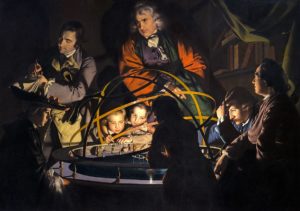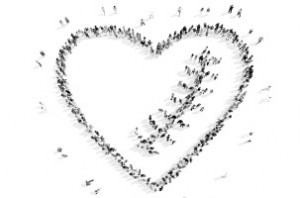 Cities also reorganized themselves. This was always complicated, because rulers tend to prefer cities, and because Roman customs persisted more strongly in urban areas than than in rural areas. Even Roman baths persisted in Europeans cities. We know this because we have records from cities of the 11th century, which include people complaining that the baths are too noisy and disrupt their sleep. Continue reading “Earned Knowledge, L10, P3”
Cities also reorganized themselves. This was always complicated, because rulers tend to prefer cities, and because Roman customs persisted more strongly in urban areas than than in rural areas. Even Roman baths persisted in Europeans cities. We know this because we have records from cities of the 11th century, which include people complaining that the baths are too noisy and disrupt their sleep. Continue reading “Earned Knowledge, L10, P3”
Earned Knowledge, L10, P2
 As Roman power crumbled, and as the kingdoms of their barbarian successors followed the same course, the land of Europe was left in the hands of many thousands of farmers and hundreds of larger holders. As we covered in Lesson 8, some people were comfortable being self-reliant and simply took empty pieces of land, making it their own. Others, less comfortable standing alone or simply content where they were, made deals with existing landholders to continue living as they had been. Over time, this became a new model of land ownership and use. Continue reading “Earned Knowledge, L10, P2”
As Roman power crumbled, and as the kingdoms of their barbarian successors followed the same course, the land of Europe was left in the hands of many thousands of farmers and hundreds of larger holders. As we covered in Lesson 8, some people were comfortable being self-reliant and simply took empty pieces of land, making it their own. Others, less comfortable standing alone or simply content where they were, made deals with existing landholders to continue living as they had been. Over time, this became a new model of land ownership and use. Continue reading “Earned Knowledge, L10, P2”
Western Civilization, Seen from 2150 AD, Part 2
 As I noted last time, a small roll of pages recently showed up at my door. They appeared to have been ripped from a history book entitled 2000–2150 AD: The Emergence of Modernity. I am completing my transcription of them today, verbatim. Make of it what you will. Continue reading “Western Civilization, Seen from 2150 AD, Part 2”
As I noted last time, a small roll of pages recently showed up at my door. They appeared to have been ripped from a history book entitled 2000–2150 AD: The Emergence of Modernity. I am completing my transcription of them today, verbatim. Make of it what you will. Continue reading “Western Civilization, Seen from 2150 AD, Part 2”
Earned Knowledge, L10, P1
 Western Civilization
Western Civilization
Western civilization, to be clear, is not an extension of Greek or Roman civilization. We have borrowed from Greece and Rome (a sensible thing to do), but those were slave societies, and Christian Europe rejected slavery.
And so, the new European civilization that we call “Western,” had to develop in a very different way. It became something substantially new, embodying a model of life that hadn’t been seen before in human history. Continue reading “Earned Knowledge, L10, P1”
Western Civilization, Seen from 2150 AD, Part 1
 A small roll of pages showed up in my mailbox last week, printed on an odd size and type of paper. They appeared to have been ripped from a history book entitled 2000–2150 AD: The Emergence of Modernity. I’m repeating the text here verbatim, sans the header, which mentions only the title of the book. (Or perhaps it’s the title of a chapter.)
A small roll of pages showed up in my mailbox last week, printed on an odd size and type of paper. They appeared to have been ripped from a history book entitled 2000–2150 AD: The Emergence of Modernity. I’m repeating the text here verbatim, sans the header, which mentions only the title of the book. (Or perhaps it’s the title of a chapter.)
Make of this what you will. Continue reading “Western Civilization, Seen from 2150 AD, Part 1”
Earned Knowledge, L9, P3
 Another important invention was the screw pump, made by an important mathematician and inventor named Archimedes. As the screw is turned (and there are many variations of this design), water is raised up and eventually pours into the elevated container. Continue reading “Earned Knowledge, L9, P3”
Another important invention was the screw pump, made by an important mathematician and inventor named Archimedes. As the screw is turned (and there are many variations of this design), water is raised up and eventually pours into the elevated container. Continue reading “Earned Knowledge, L9, P3”
Earned Knowledge, L9, P2
 Also invented at this time (though some people think it was later) was the shadoof (shu-DOOF), which was a counter-weighted lever and bucket. These interesting devices allowed people (especially old and young people who weren’t terribly strong) to pull water from streams, lakes and wells. Water, of course, is fairly heavy, weighing more than eight pounds per gallon. Continue reading “Earned Knowledge, L9, P2”
Also invented at this time (though some people think it was later) was the shadoof (shu-DOOF), which was a counter-weighted lever and bucket. These interesting devices allowed people (especially old and young people who weren’t terribly strong) to pull water from streams, lakes and wells. Water, of course, is fairly heavy, weighing more than eight pounds per gallon. Continue reading “Earned Knowledge, L9, P2”
Earned Knowledge, L9, P1
 The Blessings of Technology
The Blessings of Technology
A fundamental part of “how people lived” is the technology they created and used. We’ve been covering this in our previous lessons, but this lesson will go into it further.
One of the most important things to remember about technology is that it improves human life far more than rulership ever has or ever could. We see this very clearly in the fact that technology is almost never forced upon us: It’s appeal is so clear that we willingly spend our time and money to get it. Continue reading “Earned Knowledge, L9, P1”
ROSC 6: Rise of the Scarred People
 In the back room of the sanitarium, young Esther showed me a handmade plaque, about the size of a typical award plaque, which it may have been originally.
In the back room of the sanitarium, young Esther showed me a handmade plaque, about the size of a typical award plaque, which it may have been originally.
“Everyone here has gone through this,” she said. “Even me.”
I’m pretty well used to dark things (having read lots of nasty history), but this was a dark perspective that was new and slightly jarring. It read: Continue reading “ROSC 6: Rise of the Scarred People”
ROSC 5: The Late, Great Chester Cruz
 I found the Mueller Sanitarium for the Chronically Ill a few blocks from a place I worked back in the 1980s. It sits almost by itself, at least if you don’t count parking lots, and only a block or so from a rapid transit train. It’s tucked in between a middle class neighborhood and a small industrial park. The building itself is an old brick six-flat, apparently in good condition, and the sanitarium sign in front is almost discrete. It’s easy to see as you approach the building but was clearly not designed to attract attention. Continue reading “ROSC 5: The Late, Great Chester Cruz”
I found the Mueller Sanitarium for the Chronically Ill a few blocks from a place I worked back in the 1980s. It sits almost by itself, at least if you don’t count parking lots, and only a block or so from a rapid transit train. It’s tucked in between a middle class neighborhood and a small industrial park. The building itself is an old brick six-flat, apparently in good condition, and the sanitarium sign in front is almost discrete. It’s easy to see as you approach the building but was clearly not designed to attract attention. Continue reading “ROSC 5: The Late, Great Chester Cruz”
